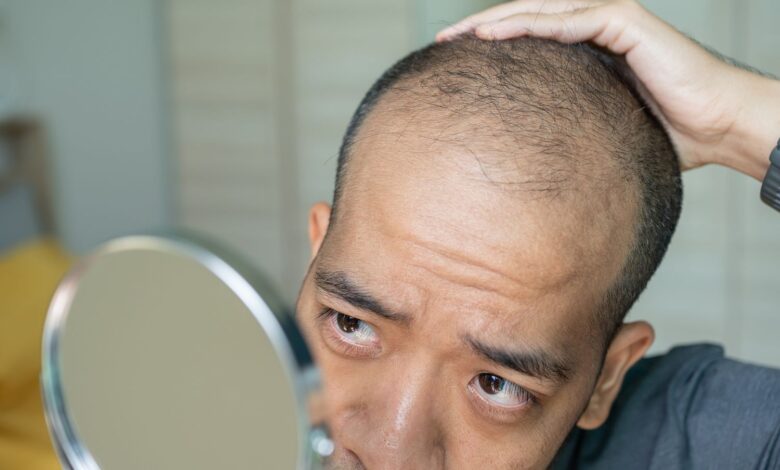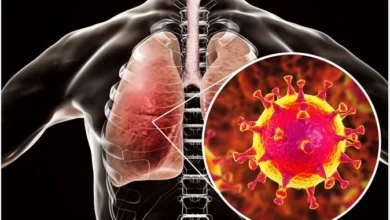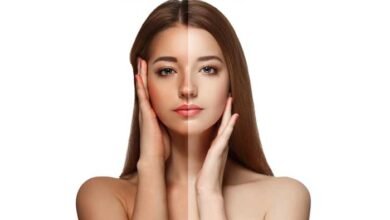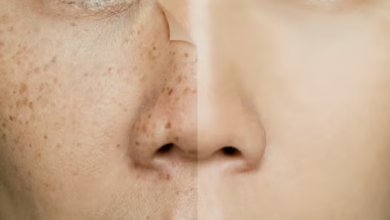How Vitamin D Deficiency Causes Hair Loss

Vitamin D is essential for various bodily functions, including maintaining healthy bones, supporting the immune system, and promoting hair growth. However, a deficiency in this crucial nutrient can lead to several health issues, one of the most noticeable being hair loss. In this article, we will explore how vitamin D deficiency causes hair loss and what steps you can take to prevent it.
Understanding Vitamin D Deficiency
Vitamin D, also known as the “sunshine vitamin,” is produced by the body in response to sun exposure. It can also be obtained through certain foods and supplements. Despite its availability, vitamin D deficiency is surprisingly common, affecting millions of people worldwide. Factors contributing to this deficiency include limited sun exposure, poor diet, and certain medical conditions.
The Role of Vitamin D in Hair Growth

Vitamin D plays a significant role in the hair growth cycle. It helps create new hair follicles, which are tiny pores from which new hair grows. When your body has adequate levels of vitamin D, it supports the growth of strong and healthy hair. Conversely, a deficiency can disrupt the normal hair growth cycle, leading to hair thinning and loss.
How Vitamin D Deficiency Causes Hair Loss

- Impact on Hair Follicles: Vitamin D is crucial for the health of hair follicles. A deficiency can lead to the miniaturization of hair follicles, making them less effective in producing hair. Over time, this can result in noticeable hair thinning and loss.
- Impaired Keratin Production: Keratin is a protein that makes up the structure of hair. Vitamin D influences keratin production. Without sufficient vitamin D, the body struggles to produce adequate keratin, leading to weaker hair that is more prone to falling out.
- Immune System Dysfunction: Vitamin D deficiency can affect the immune system, causing it to attack hair follicles mistakenly. This autoimmune response can trigger conditions like alopecia areata, where hair falls out in small, round patches.
- Hormonal Imbalance: Vitamin D is linked to the regulation of hormones in the body. Hormonal imbalances caused by vitamin D deficiency can contribute to hair loss, particularly in women.
Symptoms of Vitamin D Deficiency
Apart from hair loss, other symptoms of vitamin D deficiency include:
- Fatigue and tiredness
- Bone and back pain
- Depression and mood swings
- Impaired wound healing
- Muscle pain
How to Prevent Hair Loss Due to Vitamin D Deficiency
- Increase Sun Exposure: Spend more time outdoors in sunlight, especially during the morning hours. This helps your body naturally produce vitamin D.
- Dietary Sources: Incorporate vitamin D-rich foods into your diet, such as fatty fish (salmon, mackerel), egg yolks, fortified dairy products, and mushrooms.
- Supplements: If you struggle to get enough vitamin D from sunlight and food, consider taking vitamin D supplements. Consult with a healthcare professional to determine the right dosage for you.
- Regular Check-ups: Have your vitamin D levels checked regularly, especially if you are experiencing unexplained hair loss. Early detection and treatment of deficiency can prevent further hair loss and promote regrowth.
Conclusion
Vitamin D deficiency can be a significant cause of hair loss. Understanding the connection between vitamin D and hair health is crucial for prevention and treatment. By ensuring adequate vitamin D levels through sun exposure, diet, and supplements, you can maintain healthy hair and overall well-being.
If you have any queries related to medical health, consult Subhash Goyal or his team members on this given no +91 88008 25789, +91 99150 99575, +918283060000



